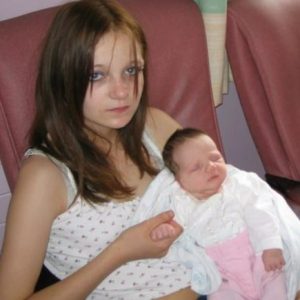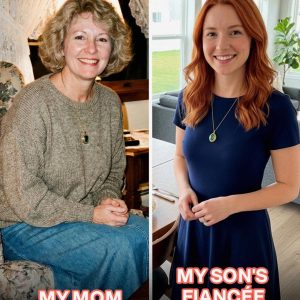Courtney Love’s early life was turbulent, chaotic, and fraught with instability. Born on July 9, 1964, in San Francisco, she grew up amid a cultural whirlwind, with a psychotherapist mother, a father connected to the Grateful Dead, and Phil Lesh as her godfather. Creativity came naturally to her, and from a young age she explored acting, music, and storytelling with remarkable energy. However, her childhood was shadowed by trauma. Her parents divorced, and she endured disturbing experiences, including early exposure to drugs. Her mother described her childhood as tragic and marked by a sense of helplessness. Diagnosed with autism as a child, she struggled with communication and sensory sensitivity. Constant uprootings—from New Zealand to juvenile correctional facilities—left her without stability, forcing her to navigate a life full of dislocation, discipline, and isolation.
Despite these challenges, Courtney discovered music as a lifeline. While in a juvenile facility, she immersed herself in the sounds of Patti Smith, the Runaways, and the Pretenders, igniting a fierce passion that would shape her career. Legal emancipation in 1980 marked a turning point, as she distanced herself permanently from her mother and took control of her own life. She worked various jobs, including as a dancer in Japan and as a DJ in the United States, constantly reinventing herself, including adopting a new last name as a symbolic break from her past. With no formal training or stable home, her drive and ambition propelled her forward, demonstrating resilience and determination that would become hallmarks of her later career.
By the late 1980s, Courtney Love began gaining recognition in the arts and entertainment world. She acted in Alex Cox films such as Sid and Nancy and Straight to Hell, and in 1989 co-founded the band Hole with Eric Erlandson. Hole quickly gained attention for its raw energy, unfiltered lyrics, and Courtney’s electrifying stage presence. Her music resonated with the underground scene, blending punk aggression with deeply personal lyrics. Her breakthrough, however, extended beyond music when she married Nirvana frontman Kurt Cobain in 1992. Their relationship became one of the most scrutinized in rock history, with Courtney openly admitting she pursued Kurt, a boldness that defined much of her public persona. Fame arrived rapidly, and with it intense pressure, media attention, and public scrutiny that would test her resilience.
The death of Kurt Cobain in 1994 profoundly affected Courtney, both personally and professionally. She grieved privately, handling Cobain’s cremation and distributing his ashes in unique ways, including some to Buddhist monks and even into a teddy bear. Despite this personal tragedy, she rebuilt her career with remarkable determination. She earned a Golden Globe nomination for The People vs. Larry Flynt in 1995, released Hole’s Grammy-nominated album Celebrity Skin, and launched her solo album America’s Sweetheart. Throughout the late 1990s and 2000s, she faced legal issues, public scrutiny, and personal struggles, including stints in rehab. Nonetheless, she continued acting in television roles, releasing new music, and expanding her creative work as a writer, including manga projects and memoirs.
In recent years, Courtney has turned toward reflection and legacy, focusing on storytelling, writing, and her family. Her long-awaited memoir, The Girl with the Most Cake, released in 2022, offered her perspective on decades of turbulence, fame, and personal growth. She remains devoted to her daughter, Frances Bean, born in 1992, and maintains a complex but steady presence in the public eye. While she has not remarried, she continues to honor Cobain’s memory and has expressed admiration for artists such as Kendrick Lamar. Courtney’s journey—from a neglected and uprooted child to a rock icon, actress, writer, and cultural figure—is a testament to resilience, creativity, and survival against the odds. Her life story illustrates the interplay of trauma, ambition, and reinvention, capturing the extraordinary arc of a woman who carved her path despite immense challenges.
Courtney Love’s life demonstrates the power of persistence and self-reinvention. From early exposure to trauma and instability to the creation of a groundbreaking musical and acting career, she transformed adversity into artistic expression and cultural influence. Her story is defined by moments of raw vulnerability, public triumph, and unflinching honesty, and she has continuously navigated personal and professional obstacles with resilience. Love’s trajectory emphasizes the complexities of fame, the scars of early trauma, and the determination required to reclaim one’s narrative. As an artist, mother, and cultural figure, she exemplifies the ability to redefine oneself, channeling personal hardship into creativity, advocacy, and enduring influence.




